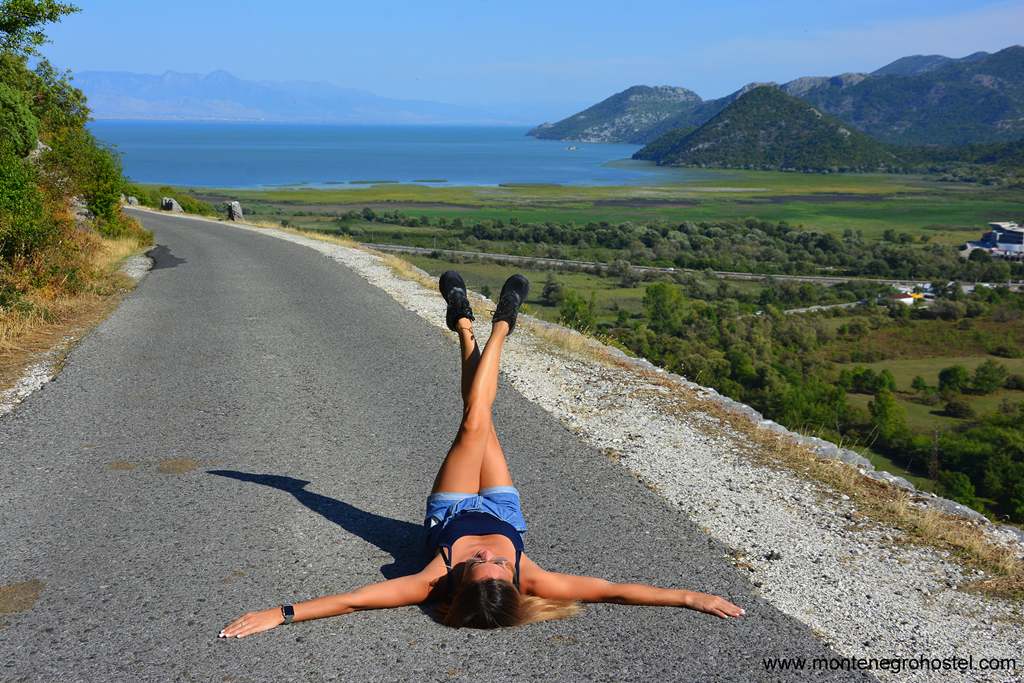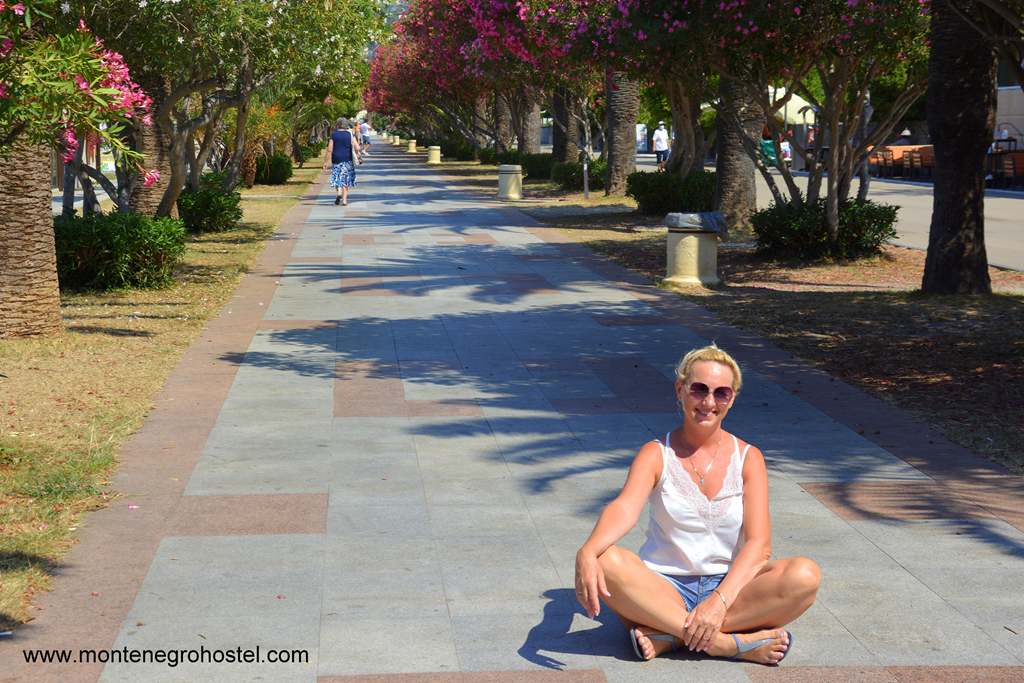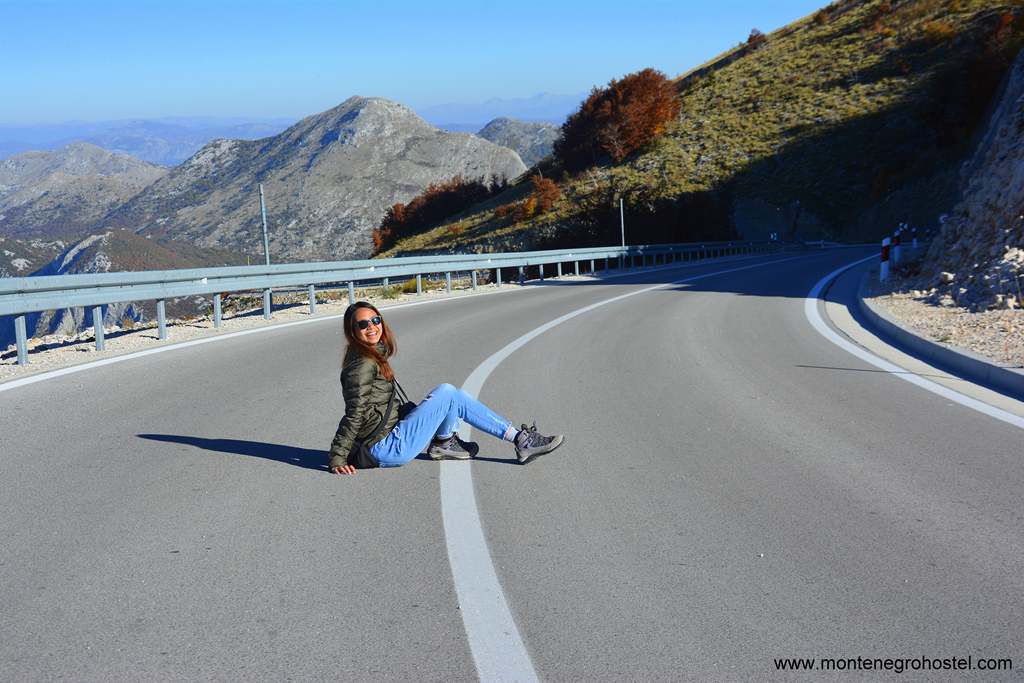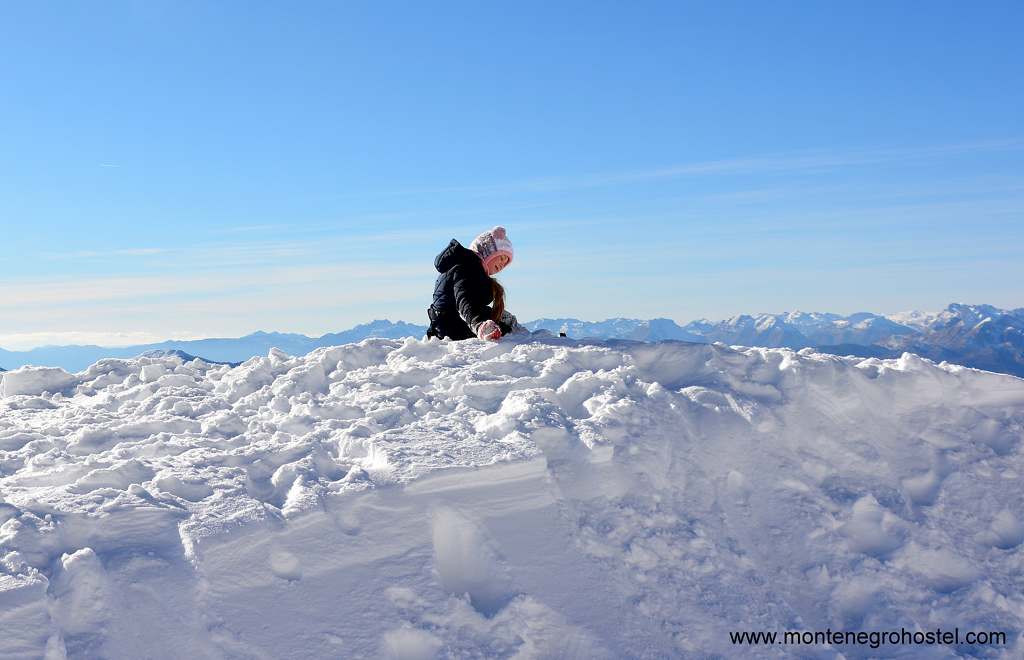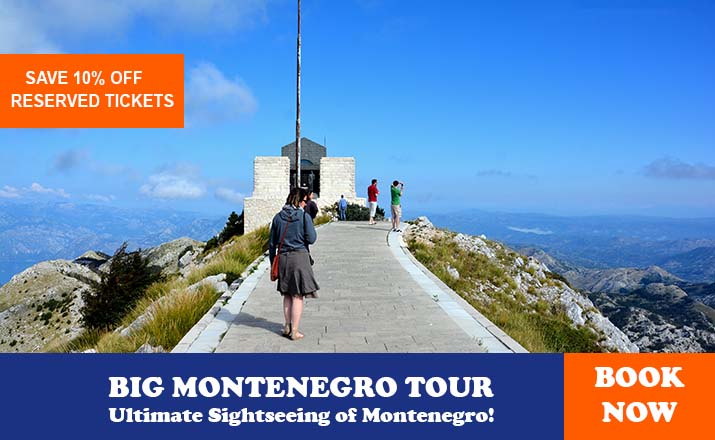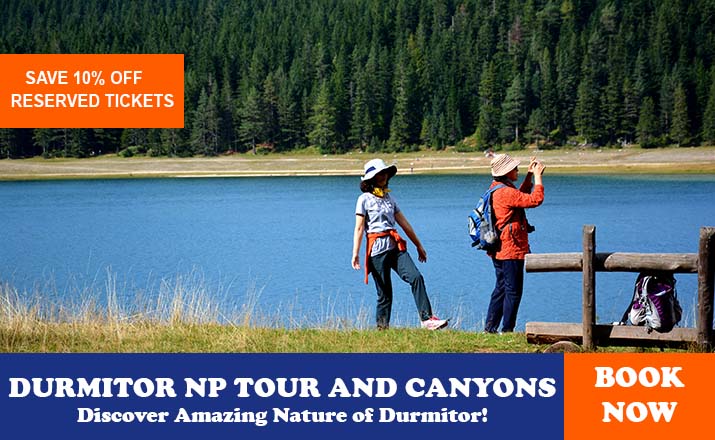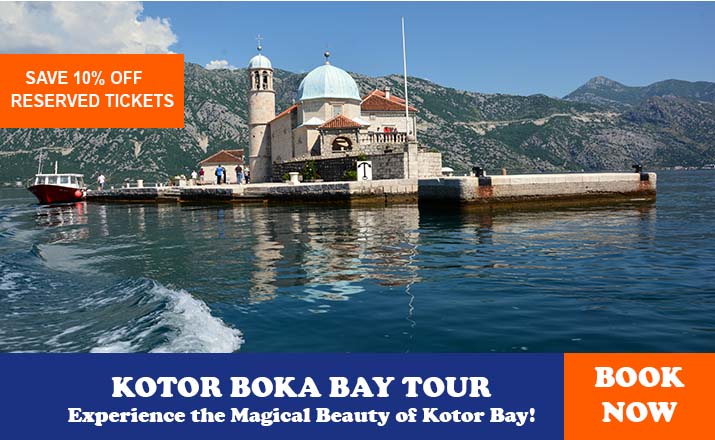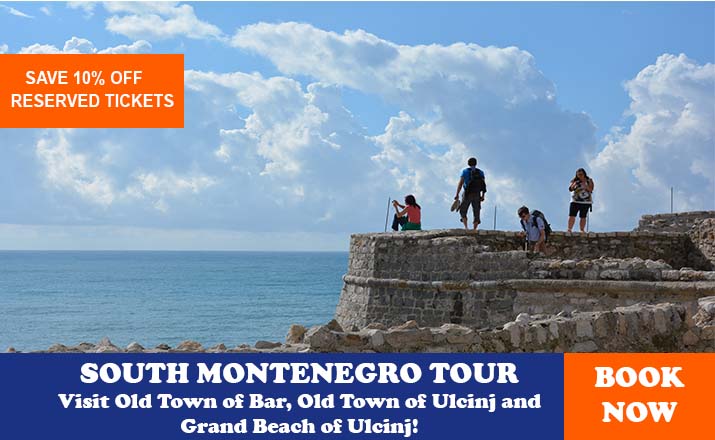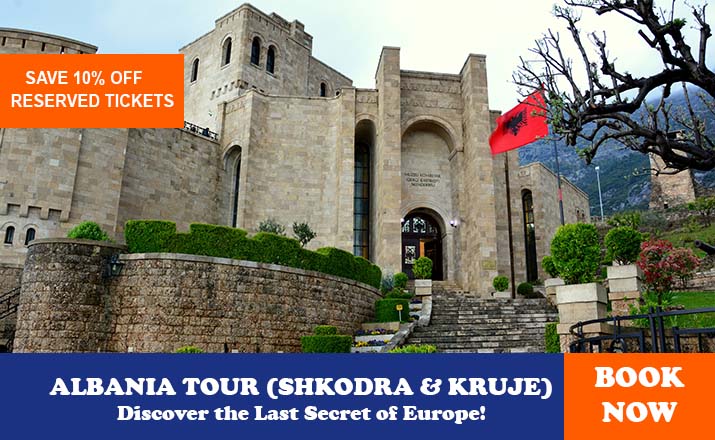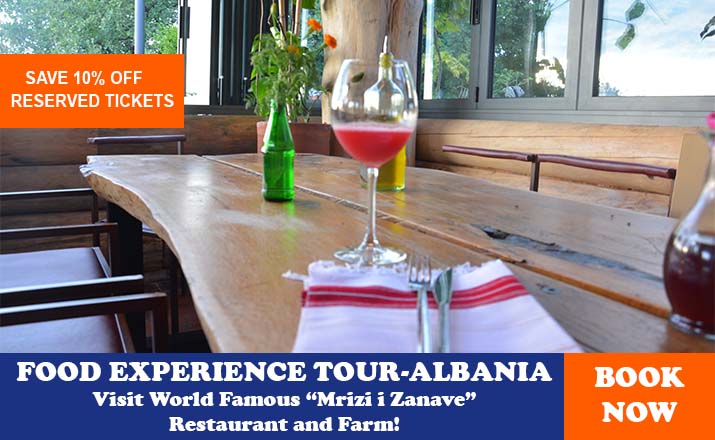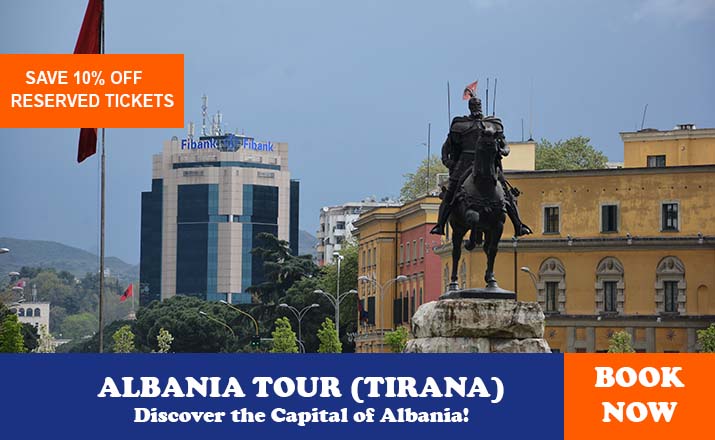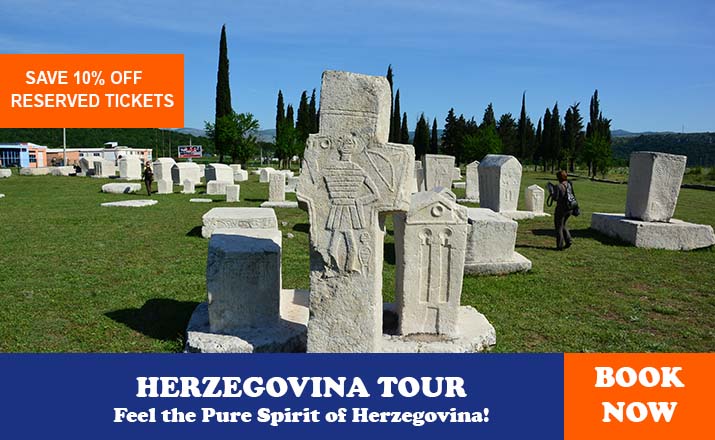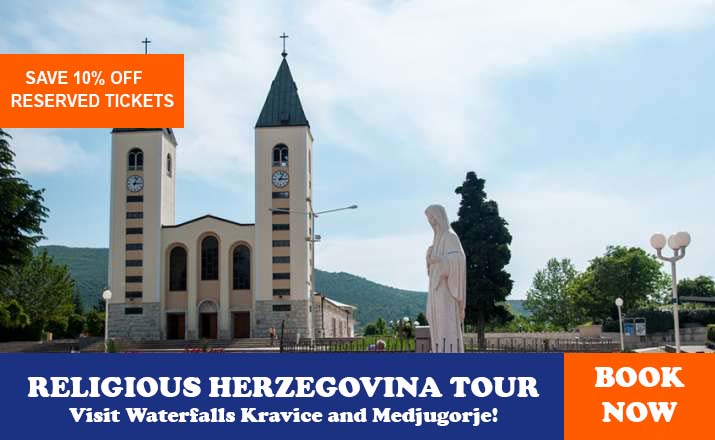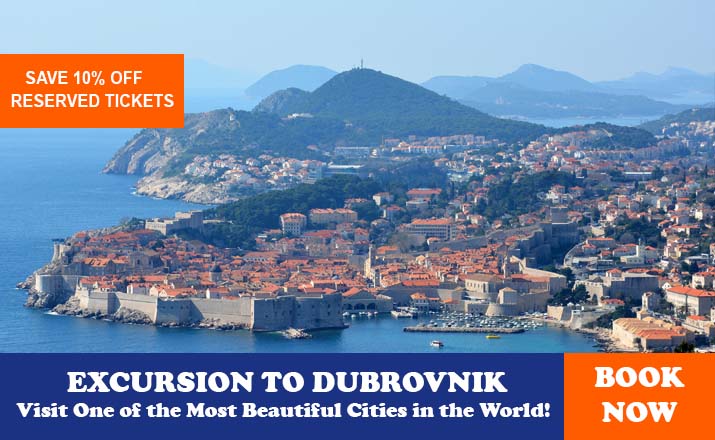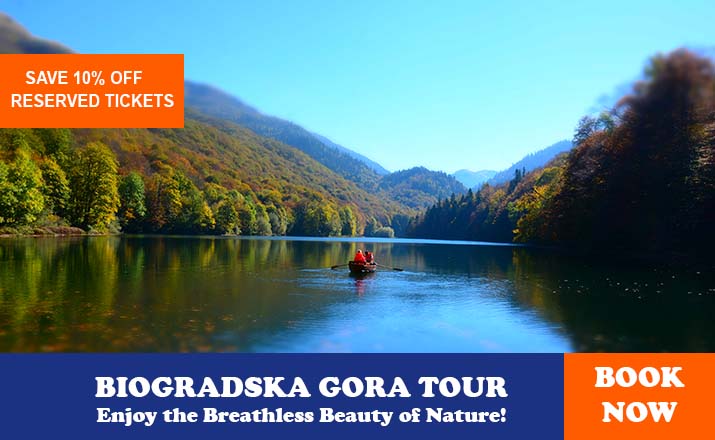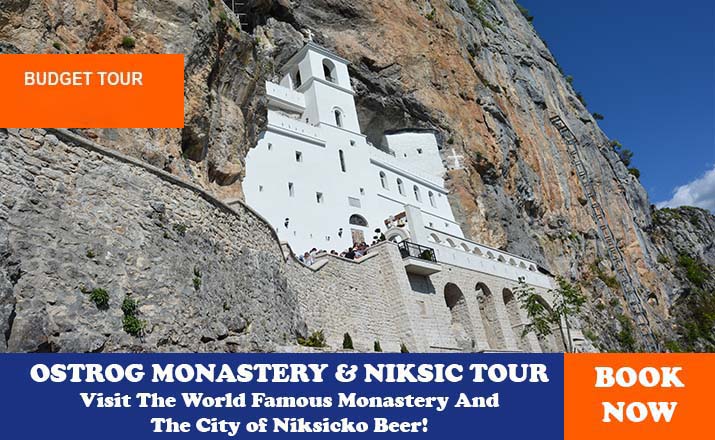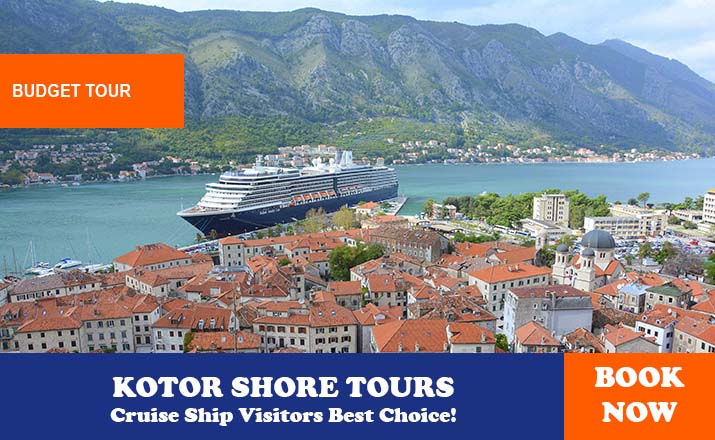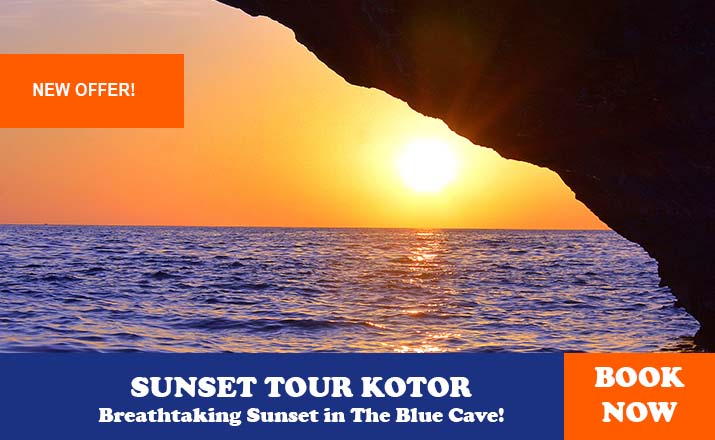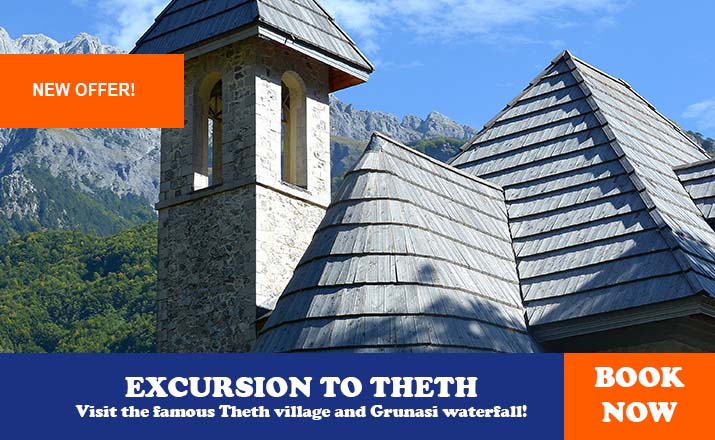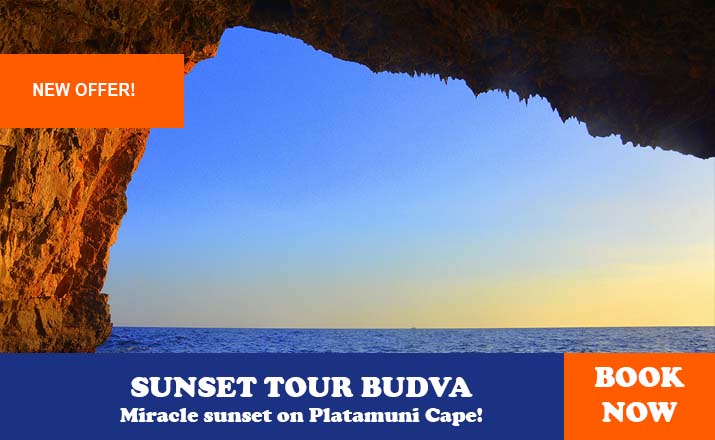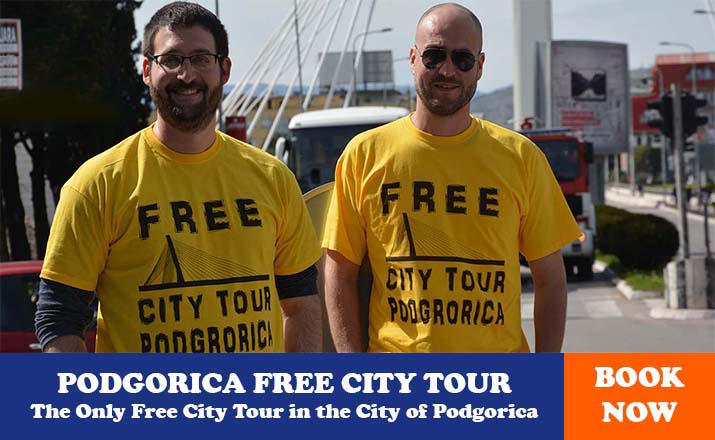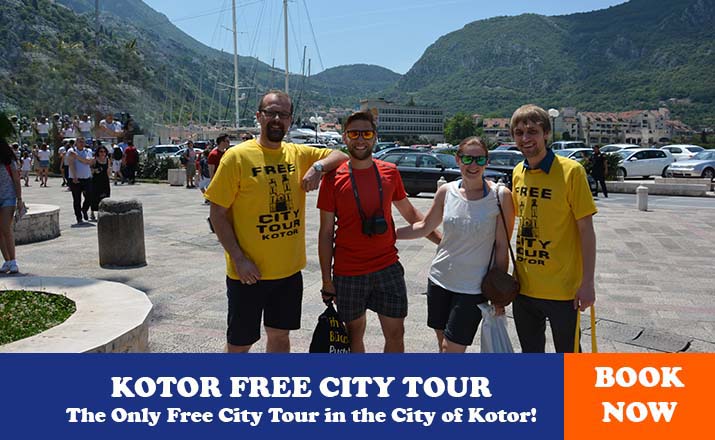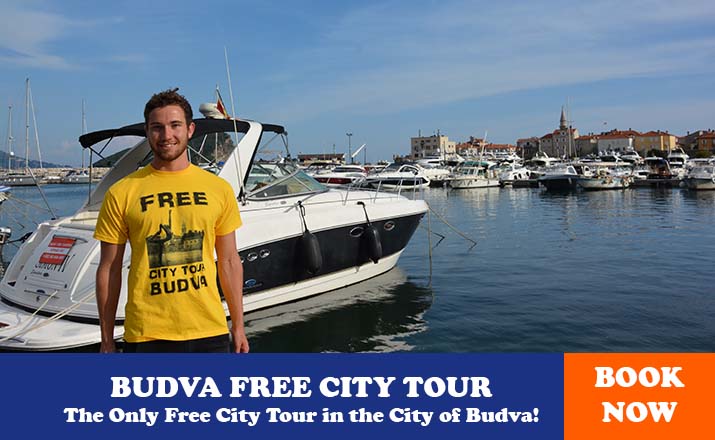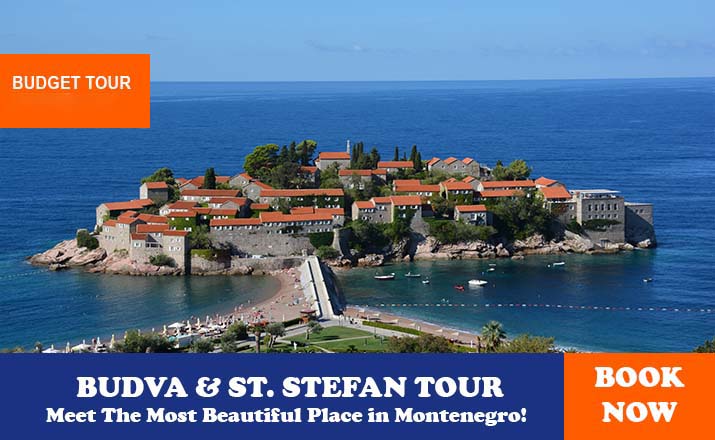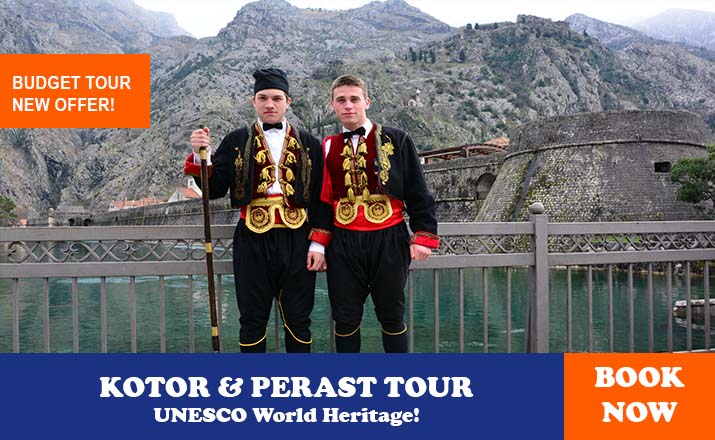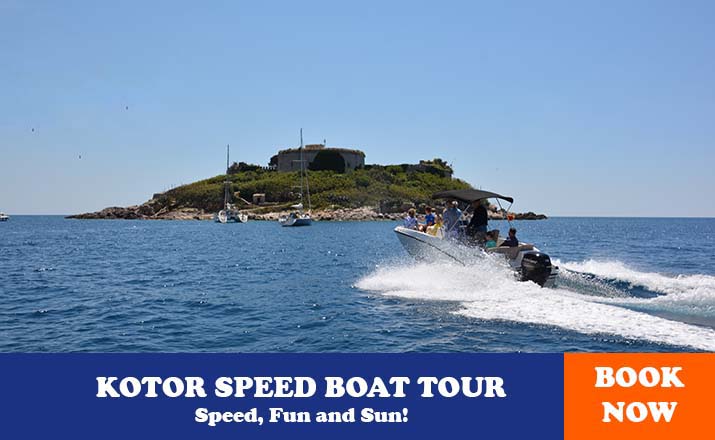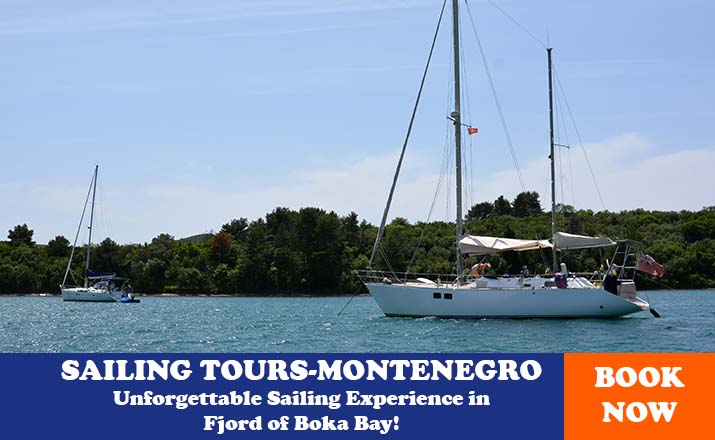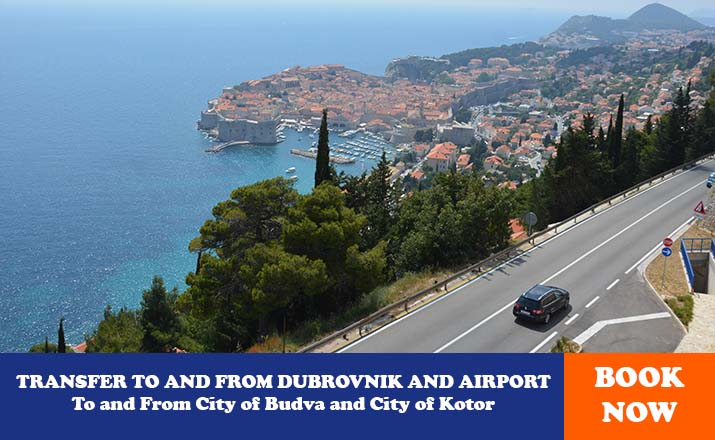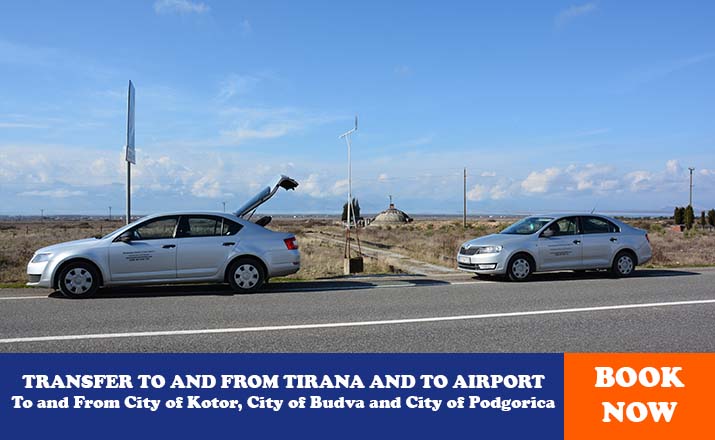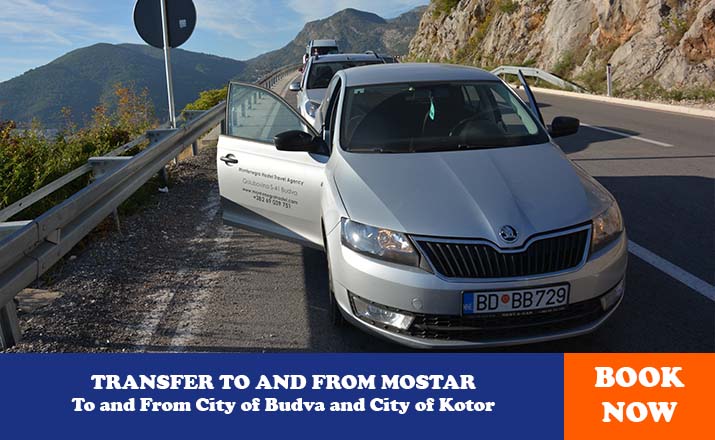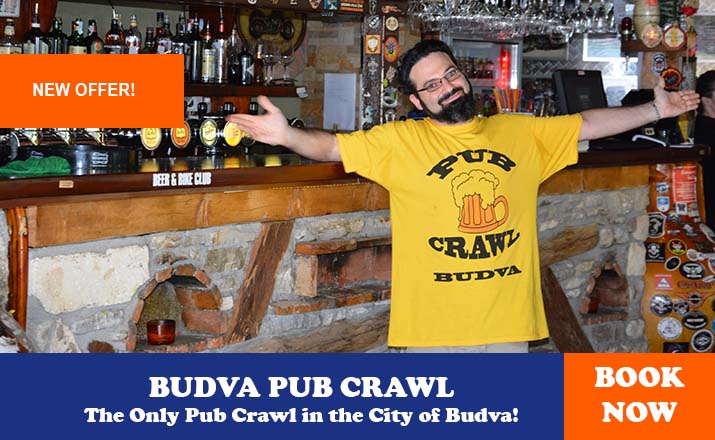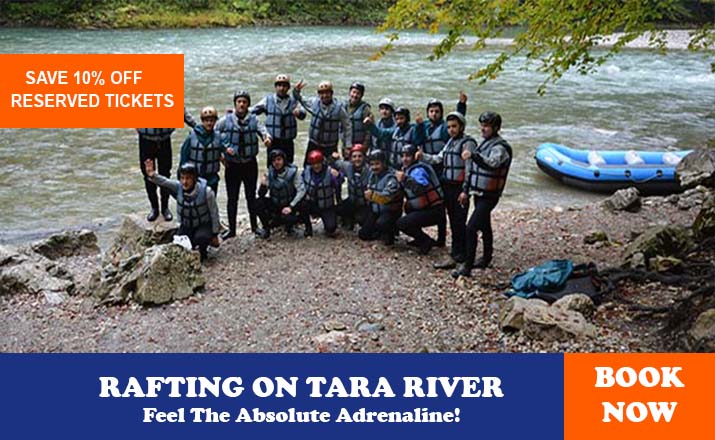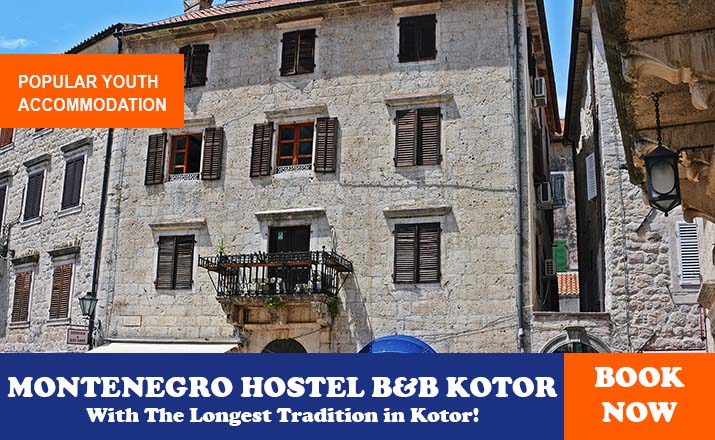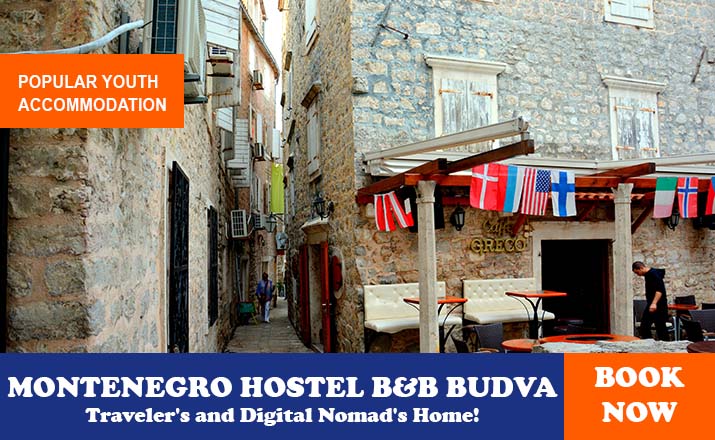WHEN TO VISIT
WHEN TO VISIT
Montenegro is appealing for a visit in all seasons since its varied climate and geography offer a change of scenery and activities within only a couple of hours' drive.
SPRING
In April in the coastal area, usually, people are lightly dressed but with umbrellas, as this is the rainiest month of the year. Weather allowing, the bathing season starts around May 1st when the sun shines brightly enough to convince even the hardiest. During this month, most of the beach bars and services are just opening and are not fully operational.
The mountain rivers are swollen with melting snow, and if you enjoy white-water rafting, May and June are the months for your visit. Mountain peaks are still covered with snow, and sudden weather changes may easily bring another snowstorm. This is the most idyllic season in the lower inland areas and a good opportunity to see Lake Skadar at its largest part when it is teeming with birdlife and the green water-lilies. Near sun-scorched Podgorica are located waterfalls of the River Cijevna in all their magnificence.
SUMMER
By the beginning of June, the tourist season starts to gain force, but the prices of accommodation during this month are still significantly lower than those from the 1st of July. The real tourist invasion comes in July and August when the seaside becomes crammed with visitors of all ages and profiles, bringing the rundown infrastructure to the verge of a breakdown. Cafes and nightclubs are all open, and local music festivals and cultural events follow one another. If you are not looking for loud fun, a crowd, and high temperatures, this is the time of year to avoid.
The season is also in full swing in the mountains, but the crowds are not so evident here. Many Montenegrins head off to the freshness of the mountains to visit their relatives, and in these months, even the isolated villages seem alive once more. It is still summer in September, only the days are shorter, but by the end of the month, the beaches are empty and are left over for the enjoyment of the few remaining tourists.
AUTUMN
October is mild in the littoral, but it is the last month to visit the high mountains, as by its end, it will almost surely start to snow. November is still sunny in the first two weeks, and the next two can be a little colder, but not too much. Now, almost all tourist businesses have closed, and the littoral has fallen into its winter slumber.
Due to global warming, it is possible to stay on the beach and swim in the sea until the first half of November. October and November are also ideal months to visit national parks due to the golden-red color of the leaves. The landscape photos are impressively beautiful.
WINTER
The skiing season starts in December and peaks between New Year’s Eve and mid-February, though good ski conditions last through April. Prices reflect the number of visitors. This is not a season to travel around the interior, as severe weather conditions may close many roads for days. Podgorica is coldish and gray, while the coastal areas see some sunshine breaking through the rainy clouds.
There are very few tourists around, and you will be able to observe the locals in their relaxed everyday routine. You will also experience towns such as Kotor or Budva in the way they were before the age of mass tourism. Montenegro has several ski resorts, the most famous of which are Durmitor and Kolašin. In terms of equipment and popularity, Kolašin is one of the most visited ski centers in the region.
Montenegro Hostel Team
VISA REQUIREMENTS
VISA REQUIREMENTS
Visas are not required by visitors from the following countries to visit for up to 90 days
Albania, Andorra, Antigua and Barbuda, Anguilla, Argentina, Aruba, Armenia, Azerbaijan, Australia, Austria, Bahamas, British Virgin Islands, Barbados, Belgium, Bermudas, Bosnia and Herzegovina, Brazil, Brunei, Bulgaria, Canada, Chile, Costa Rica, Croatia, Cyprus, Catarrh, Columbia, Czech Republic, Denmark, Dominica, El Salvador, Estonia, Finland, France, Germany, Greece, Grenada, Guatemala, Honduras, Hong Kong, Hungary, Iceland, Ireland, Israel, Italy, Japan, Kuwait, Latvia, Liechtenstein, Lithuania, Luxembourg, Macedonia, Malaysia, Malta, Mexico, Monaco, Moldova, Mauritius, New Zealand, Nicaragua, Netherland, Norway, Panama, Paraguay, Peru, Poland, Portugal, Romania, San Marino, Serbia, Samoa, Seychelles, Singapore, Slovakia, Slovenia, South Korea, Spain, St Kitts and Nevis, Sweden, Switzerland, Taiwan, Trinidad and Tobago, Timor-Leste, Ukraine, United Kingdom, United States, Uruguay, Vatican, Vanuatu, UAE.
Visas are required by visitors from the following countries
Afghanistan, Algeria, Angola, Bangladesh, Bahrain, Belize, Benin, Bhutan, Bolivia, Botswana, Burkina Faso, Burundi, Cambodia, Cameroon, Cape Verde, Central African Republic, Chad, China, Comoros Islands, Congo, Cuba, Cayman Islands, Democratic Republic of Congo, Djibouti, Dominican Republic, Ecuador, Egypt, Equatorial Guinea, Eritrea, Ethiopia, Fiji, Gabon, Gambia, Georgia, Ghana, Guinea, Guinea Bissau, Gibraltar, Guyana, Haiti, India, Indonesia, Iran, Iraq, Ivory Coast, Jamaica, Jordan, Kenya, Korea (North), Kyrgyzstan, Laos, Lesotho, Lebanon, Liberia, Libyan Arab Jamahiriya, Madagascar, Mali, Malawi, Maldive Islands, Marshall Islands, Mauritania, Macao, Montserrat, Mongolia, Morocco, Mozambique, Myanmar, Namibia, Nauru, Nepal, Niger, Nigeria, Nicaragua, Oman, Palau, Pakistan, Palestine, Philippines, Papua New Guinea, Quvait, Rwanda, Senegal, Sierra Leone, Syria, Somalia, Solomon Islands, South Sudan, Sri Lanka, Swaziland, Sudan, Suriname, South African Republic, Tajikistan, Tanzania, Thailand, Togo, Tonga, Tunisia, Turkmenistan, Tuvau, Turkey, Uganda, Uzbekistan, Vietnam, Yemen, Zambia, and Zimbabwe
Visas are not required by visitors from the following countries to visit for up to 30 days
Belarus, Ecuador, Kazakhstan, Kosovo, Cuba, Peru, Saudi Arabia, and Venezuela.
EU Citizens
EU nationals may enter with an ID card.
US Citizens
Holders of a valid US or Schengen visa may transit for up to 7 days without a visa.
RUSSIAN Citizens
Visitors from the Russian Federation can stay without a visa up to 30 days from the period of 1st of November to the 30th of April.
From the 1st of May to the 31st of October, visitors from the Russian Federation can stay without a visa for up to 90 days.
REGISTRATION OF YOUR STAY IN MONTENEGRO
Official border crossings
The local law requires you to register with the local police within 24 hours of your arrival unless you are staying in a hotel or official tourist accommodation, in which case you will be registered automatically on checking in. The city tax is obligatory, and it should be paid per day of staying. If you do not register, you may be fined and face difficulties leaving the country. If the company or person you are visiting is providing you with private accommodation, they are required to submit an application for your residence to the police within 12 hours of your arrival and cancel it within 12 hours of your departure. From 2016. Registration is in electronic form.
Unofficial border crossings
If you are planning to take a hiking tour that includes crossing the state border outside the official state border crossing points (e.g., Prokletije, Hajla, Ljubisnja, Kamena Gora, Maglic, Orjen mountains, etc), a relevant legal procedure must be observed. The Application form for crossing a state border outside the official state border crossing points should be lodged with the competent institution, namely the state border police of the country from which you are exiting. Border police of the existing state shall undertake all the necessary measures to provide for your safe crossing.
When making plans to exit Montenegro outside the official state border crossing points, the Application form should be lodged with the local border police office, which is in charge of the relevant area, and they will provide you with their reply in a timely fashion. In cooperation with the border police of the neighboring country, a competent organizational unit of the border police shall provide all the conditions for your uninterrupted and safe crossing and inform you thereof. The Application form may be lodged for groups and individual crossings at the state border.
Along with the filled Application form, scanned travel documents should be sent by email.
If you are not sure to which border zone the area for which you are submitting your Application form belongs, we kindly ask you to send your Application form to the following e-mails: This email address is being protected from spambots. You need JavaScript enabled to view it. or This email address is being protected from spambots. You need JavaScript enabled to view it.
Overview of visa regimes for foreign citizens
Having a tourist visa does not mean automatic entry into Montenegro. Other legal requirements for granting a foreigner entry and stay in Montenegro must also be met according to the Law on Foreigners (“Official Gazette of Montenegro”, No. 82/08). The Visa regime between Montenegro and other countries is regulated by the Regulation on the Visa Regime (“Official Gazette of Montenegro”, No. 18/09). A Visa in itself does not offer a grant of permission to work in Montenegro. The person who intends to work in Montenegro must obtain a temporary residence permit for employment or seasonal work on the grounds of the previously issued work permit.
Airport borders: Airport Podgorica (TGD) and Airport Tivat (TIV) www.montenegroairports.com
Roard borders: with Serbia (Ranče, Čemerno, Dobrakovo, Kula, Draženovac, Vuče), with Albania (Božaj, Sukobin, Grnčar), with B&H (Sitnica, Ilino brdo, Vraćenovići, Krstac, Nudo, Šćepan Polje, Metaljka, Šula), with Croatia (Debeli brijeg, Kobila)
Port borders: Bar, Budva, Kotor, Zelenika, Kumbor (Portonovi)
Embassies and consulates of Montenegro
For all further information related to consulate matters (e.g., visas, citizenship, estates, etc), please contact by telephone or e-mail one of the diplomatic consulate missions here
https://mvp.gov.me/en/sections/Missions/Embassies-and-consulates-of-Montenegro/
CUSTOM FORMALITIES
All travelers require a passport valid for the duration of their stay and should ensure that it is stamped on entry. One can bring an unlimited amount of currency into the country but is obliged to declare currency over €2000 upon entry and must obtain a declaration form from customs officials declaration from form custom officials which must be presented on departure. The amount you can take out is limited to €500 unless more has been declared on entry. For sums of money over €15,000, you should also have obtained a document that states the origin of the funds. If you fail to comply with these rules, your money may be confiscated. To avoid customs charges, declare items of value like expensive jewelry, photographs, and computer equipment. The latest regulations limit the amount of food and beverages which can be brought into the country to 5l of water, 1l of alcoholic drink, 2l of non-alcoholic, a kilogram of dried fruits and vegetables, and 1kg of purchased foodstuffs.
Persons traveling with expensive electronic equipment, such as cameras or computers, should list these items on a declaration issued by the authorities (ask if needed), which ensures that they can be taken out upon departure.
Montenegro Hostel Team
MONEY, HEALTH, AND SECURITY
MONEY AND BANKING
The official currency of Montenegro is the Euro, even though the country is not a part of the Eurozone. Montenegro used the Deutschmark from 1999 to protect against the instability of the Yugoslav Dinar and the influence of Yugoslav ex-president Milosevic, up to switching to the Euro in 2002.
Banks and large post offices will exchange Australian, Canadian, and US Dollars, Danish, Norway, and Swedish Krona, Japanese Yen, Swiss Franc, Pound Sterling (GBP), Serbian Dinar, and Bosnian Mark, with a commission charge. The larger hotels also have exchange bureaus. You will find several exchange booths in Podgorica and Tivat airports, at major bus and train stations. Currency changes usually deal with US Dollars and Swiss Francs. Purchasing British Pounds and other currencies might be more difficult as exchange offices rarely have sufficient amounts available.
Montenegro is still generally a cash economy. Credit cards are accepted in a growing number of market hotels, travel agencies, restaurants, and larger stores, but corner shops, bars, and other smaller stores will only accept cash. It is a good idea to carry enough cash for your daily needs. Among international credit cards, the most accepted are Visa and Master cards. Cash dispensers (ATMs) are most often found next to banks. Bank accounts in Montenegro are easily opened with a valid passport.
Cash transfers from abroad or all international transfers from Montenegro are required to pass through an intermediary bank in Frankfurt in order to keep control of the number of Euros in the country, which means that transfers can take anything from 5 to 10 working days. Commissions for this kind of transfer are hefty and differ significantly from bank to bank. For fast money transfers, there are branches of Western Union in the banks and post offices of Montenegro. Banking hours are 8:00-16:00 on workdays and 8:00-14:00 on Saturdays.
HEALTH
It is wise to take out comprehensive travel insurance so that your expenses are covered in case of a treated illness or accident, both in state-run and in private clinics. Medical staff in Montenegro are generally well-trained, and some will speak English. In case you don’t have medical insurance, emergency treatment will require payment, usually in cash. There are several private clinics around, and the cost of treatment in these is a bit less expensive than elsewhere in Europe.
Pharmacies (apoteka) are well-stocked and easy to find. They follow the usual working hours (8:00-20:00), but in the South, especially in the summer season, a lot of pharmacies are open every day from 8:00-23:00.
Many of the branded medicines you might be acquainted with will have different names in local pharmacies, so be sure to know the generic name of the drug or take your prescription with you. If you are reluctant to use other medicines or to buy them as imported goods at a higher price, be sure to take a good supply with you. The water is safe to drink in all of Montenegro. Local meat, cheese, poultry, and fish are all considered safe to eat. Hygiene standards are quite high in most hotels and restaurants.
SECURITY
Street crime against foreigners is generally low in Montenegro. One should beware of pickpocketing in busy tourist areas as well as on trains, buses, and at airports. Armed robberies are almost unheard of. Extra precautions should be taken if leaving a luxury car in an unattended parking place. Put all your bags, no matter what is in them, in the trunk, or some other place where they can’t be seen. The general attitude towards foreign tourists is generous and friendly, but this might not be the case with some local youths. To avoid conflict with them, ignore any provocations, remain calm and collected if spoken to in a mocking way, and, most importantly, do not try to outsmart or outdo them in any way. Contrary to many European cities, the streets of Montenegrin towns are quite safe after dark, though it is wise to stay out of secluded places.
Women traveling solo should feel safe and comfortable, but will also experience an unusual level of unwanted attention in bars and discotheques, less so in the streets. A girl sitting on her own in a café is bound to be approached for a conversation. Try not to be impolite but keep to yourself if you are not interested. Montenegrin men are great gentlemen to those of their heart’s desire, but do not like being rejected.
Topless bathing is usual on most beaches but should be avoided in areas with a Muslim majority, such as Ulcinj and its Riviera. Full nudity is tolerated only on nudist beaches.
Although homosexuality is not illegal, a display of same-sex affection in public places will arouse discontent in some local communities, especially in the small ones.
Montenegro lies on the main corridor for drug trafficking from the Middle East to Western Europe, and consequently but possession and trafficking of drugs are punishable by law and may result in jail sentences.
You are obliged to carry your passport at all times as a means of identification, but this is not strictly observed by the police. We advise you to make a copy of your passport (and other important documents) and keep it in a safe place so that you can easily get a replacement travel document in case your passport gets lost or stolen.
Montenegro Hostel Team
MANNERS AND CUSTOMS
MANNERS AND CUSTOMS
Until recently, one of the most popular jokes about Montenegrins was that the problems in their customer service stem from the fact that proud warriors cannot be changed overnight into humble waiters and chefs. Surely, Montenegrins are a nation in transition that is changing en route from shepherds clinging to their traditions to businessmen and tourism industry workers. These changes are also causing a transformation of the national temperament: once stiff and sober to remain heroic and just, modern-day Montenegrins are more relaxed, reckless, and hedonistic. Their feisty humor is unbeatable and ever-present, delivered in such a way that one wonders whether to laugh or to take it seriously. Insofar as these generalizations hold, Montenegrins are very intelligent, witty, and quick to learn. In their talents are put to good use, they become top artists, managers, professors, and doctors who compete with the best in their field elsewhere in the world.
When meeting people for the first time, shake hands sturdily, say your first name, or present someone else with the phrase “Drago mi je “ (Nice to meet you). Formal greetings are “Dobro jutro!” (Good morning, but note that this is used only in the early morning, not at 11 a.m. like in English), “Dobar dan!” (Good day!) and “Dobro veče” (“Good evening, and only at dusk and during the evenings). On formal occasions, surnames and names are preceded with titles “gospodin” for Mister, “gospodjica” for Miss, and “gospodja” for Mrs.
Stand up when you are meeting older people and women, but try not to be formal. On meeting the people you already know, we shake hands and say either “Zdravo!” (Hello) or, even more casually, “Djesi ?” (What is up?). Younger women will kiss friends on the cheek instead of shaking hands. When meeting old friends after a long period or any kind of celebration, it is usual to kiss on alternate cheeks two or three times and even hug affectionately. A fair amount of physical contact (tapping on the shoulder, taking by the hand, and similar) is usual and should be viewed as an act of closeness. Some hugging and kissing procedure precedes cordial departures. The usual goodbyes are formal “Dovidjenja!” (Goodbye) or more familiar “Zdravo!” or “Ćao” (in Italian is Ciao). Gratitude is expressed with "Hvala" (Thanks), or "Hvala puno" (Thanks a lot).
Although at their first meeting with you, Montenegrins may seem a bit reserved, this is likely to disappear after only a few minutes. Anyone whom they have met several times is counted as a friend and treated to intimate stories. Proportionally,y they will show interest in your life, political views, likes and dislikes, or other topics you might find unusual, but this should not offend since it is considered a normal basis for conversation.
On entering someone’s house, you will be offered a coffee (almost always a strong black one), rakija, or a juice, mostly homemade. On first entering a household, it is customary to bring with you a small symbolic gift- a bottle of wine, some coffee, chocolate, flowers, or something similar. When toasting, say “Živjeli” (Cheers) or when drinking with only one person, “Zdravobili” (May you be healthy). It is very important to touch glasses and look into the eyes of the people you are toasting with. Beware that your glass will be refilled as soon as you have finished it. The best defense against this is to leave a sip or two until you are prepared to leave. If you are invited to lunch or dinner, you should not hesitate, as it is not purely a gesture of politeness but an honor.
During meals, there are not too many rules to obey. You should take the offered food without hesitation. If you don't do it by yourself is not unusual for hosts are likely to serve you even larger amounts of food. Try to taste everything you are offered so as not to offend the host. The courses (appetizer, soup, main dish, and dessert) are accompanied by saying “Prijatno!” (Bon appétit) and answering “Hvala, takodje!” (Thanks, the same to you).
The greatest honor for every guest is to be invited to a slava, the celebration of a family’s saint day. The most common amongst them is "Nikoljdan" (St Nikola’s -19th December), Arandjelovdan (St Michael-21st November), Jovandan (St John’s -20th of January), and Djurdjevdan (St George’s -6th of May), when most people are invited by their friends and relatives. You could bring a small, symbolic gift, but you will be accepted equally even if you don’t. The most conventional greetings are “Srećna slava” (Happy Slava), followed by kissing on the cheeks. Upon entering the house, you will be offered žito-a wheat, nuts, and honey cake of which you should take a spoonful or two after making the sign of the cross (if you are Christian, of course). After this, all you should do is enjoy drinking at all the toasts and excellent food, which are prepared several days before the celebration of Slava.
The locals’ skills in foreign languages depend on their age and education. Most of the younger people speak English fluently. The second language spoken is Italian, then Russian, and more rarely German. Knowledge of any Slavic language is fairly useful, as many words and phrases are common or similar.
"Govoritel li engleski /ruski/ italijanski/ njemački?"- Do You speak English/ Russian/ Italian /German?
If invited for a drink in the café, probably, your host will probably strongly insist on paying the whole bill. As there is no point in arguing, it is best to pay around when he/she is not on the round to pay. Sharing payment around the table is not considered convivial. Ask to add some money, but try not to be too precise as bargaining over cents is considered avaricious. Montenegrins are not formal in the least when it comes to clothing, but the youth are very fashionable. There are a few occasions in private life apart from weddings, baptizing, or funerals when there is a dress code to obey.
Though Montenegrin girls can dress provocatively and act quite free, one should not expect too much from the first few “dates”. Patriarchal morality still looms over the society, and a Montenegrin girl doesn't want to be labeled as “easy-going”. When asking for something, politely use the phrase “Molim Vas” (Please). Using this at the end of every sentence will be considered much too formal, so try to apply it only when you are really in need of something. Bargaining is not customary and will be tolerated only in certain places, for instance, green markets, provided you are willing to spend a somewhat larger amount of money.
Business Hours
The government's administration and business companies usually work from 8 am to 4 pm, Monday to Friday. Department stores and supermarkets are generally open from 8 am to 9 pm. 24-hour shops, or kiosks, are common. Most restaurants are open till midnight. This is also when the cafes and clubs should turn the music off, except in the summer season, when the music can last up to 1 am.
Churches
Most of the large town churches are open throughout the day, whilst those in the village are open only at service times, usually at 8:30 am and 5 pm. Montenegro has Orthodox and Catholic churches and monasteries, as well as Muslim mosques. Upon entering the church, one is required to act politely, not too loudly, or raise a voice. Enter decently dressed–no shorts, miniskirts, or even uncovered shoulders. Take your hat off. Women are expected to cover their heads, although this rule is not too strictly obeyed. In Orthodox churches, women are not allowed to stay in the sanctuary behind the iconostasis. Moving around during service is not encouraged. Men should keep to the right while women should stay to the left in the church. Ask for permission if you want to take pictures, especially in the church.
Other Info
Electric current: 220 Volts with plugs of two round pins.
Local Time is GMT + 1 hour. From the end of March to the end of October, the time is GTM+2 hours.
Museums are open every day. Most are closed on Monday, but some are closed on Sunday. The last entrance is usually 30 to 40 minutes before closing time.
Tipping is not obligatory, but it is usual in taxis and restaurants to round up to the nearest whole followed by the phrase. “U redu je” (It is OK), provided you are satisfied with the service. This applies even to the smallest bills.
The metric system is used in Montenegro, the same as in the rest of continental Europe. The unit of length is a meter, for weight it’s a gram for capacity.
Holidays
January 1st and 2nd- New Year’s Day
January 7th and 8th-Orthodox Christmas
May 1st and 2nd-Labor Day
May 21st–Independence Day
July 13th-National Day
November 13th-Njegos Day
Montenegro Hostel Team

